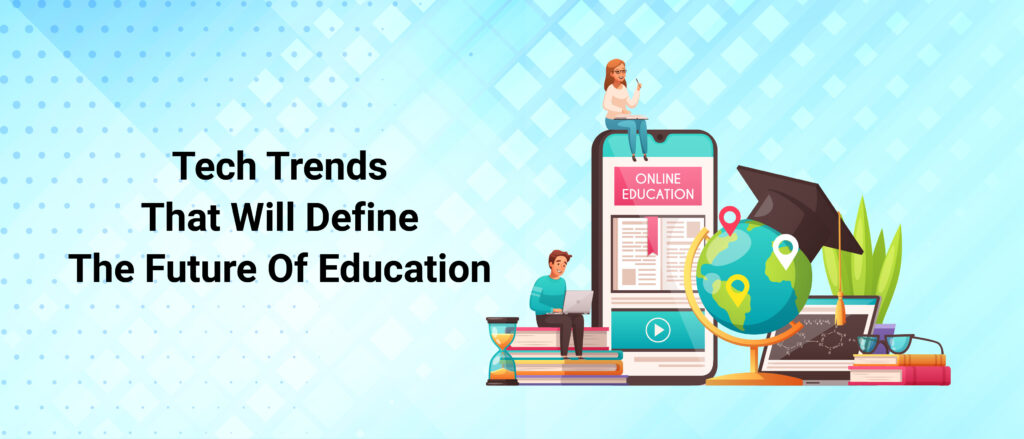
The education industry is changing to adapt to the newer generations. The adoption of new technologies is part of that change. Until this year, the sector was slow in adopting new tech. But the Covid-19 pandemic forced schools to make the transition from one day to the next. Here are the tech trends that will define the future of learning online.
Artificial Intelligence
The days of students having to spend hours looking for specific information on books are gone. The Internet has changed everything about our society, including the way we learn. Kids that were born after the Internet, grew up having instant access to information. And they expect the same dynamics when they learn at schools.
The education industry had to adapt, and part of this process was including artificial intelligence in their operations. Artificial intelligence is one of our greatest achievements so far. It is the technology trying to emulate human intelligence. Although we haven’t reached a point where we can completely simulate a human mind, we can simulate some aspects of it like learning and recognizing objects or words.
Related Article: Digital Marketing Career
AI in education is already being used to provide personalized experiences for students. It is mostly used in online learning platforms. AI algorithms help the platform to adapt to each student’s learning pace and needs. In the future, once education introduces more technologies like IoT and VR, it will have tons of data from students and teachers around the world. Then, data analysts can use AI to get insights and improve learning methods, train teachers, and more.
Related Article: Pinterest SEO Tips to Drive Traffic
AI will also serve as a teacher’s aid. The likelihood of teachers being replaced by robots is low for now. But technology can help with menial tasks like grading and testing while the teachers concentrate on the students.
Virtual and Augmented Reality
As mentioned before, the kids that grew up with technology learn in different ways than we used to. Thus, schools and educational institutions have a harder time keeping students’ attention. Virtual reality and augmented reality are some of the new technologies that will improve personalization and interactivity in the classroom.
Virtual reality is immersing oneself in a fully virtual world. So far, the technology can simulate visual effects and sounds. But that is enough to offer a virtual experience that feels real to our brains. Augmented reality is when virtual objects mix with the real world using a headset or a smartphone’s camera.
VR and AR will allow the introduction of more hands-on learning, which in all stages of education improves information retention. The old learning methods were based on memorizing information. But after a few months, most people forget what they learned if they don’t apply the knowledge. Instead, schools and universities can use VR and AR to provide situations where students have to apply what they learn in the classroom.
Related Article: Classification and Prediction in Data Science
Also, it can improve memorizing information when needed. Imagine a history class where instead of listening to a two-hour lecture you see a virtual simulation of the events. Students will probably remember it more with the VR version. Overall, the interactivity in the classroom will be like never before.
Self-Paced Learning
In the more traditional methods, the teacher is the one guiding the learning process. Only a few years ago, after many online learning platforms came into the picture, did self-paced courses become a thing. These are courses where students decide when and how to learn. They set the pace for their learning.
In self-paced learning, the classes, materials, and resources are ready beforehand and students can access them at any time. They don’t need a teacher because they study on their own. Right now, there are thousands of self-paced courses online for any topic, skill, and career. Even if you want to learn a programming language, there are self-paced coding bootcamps too.
In Summary
The education industry had to suddenly adopt new technologies this year due to the Covid-19 pandemic. So, we will probably see artificial intelligence, virtual and augmented reality, and self-paced courses more often in the industry from now on.
Some of the possibilities are still ideas. But once the technologies become widespread in all levels of education, the learning digital marketing process will be completely different from what we have today.


